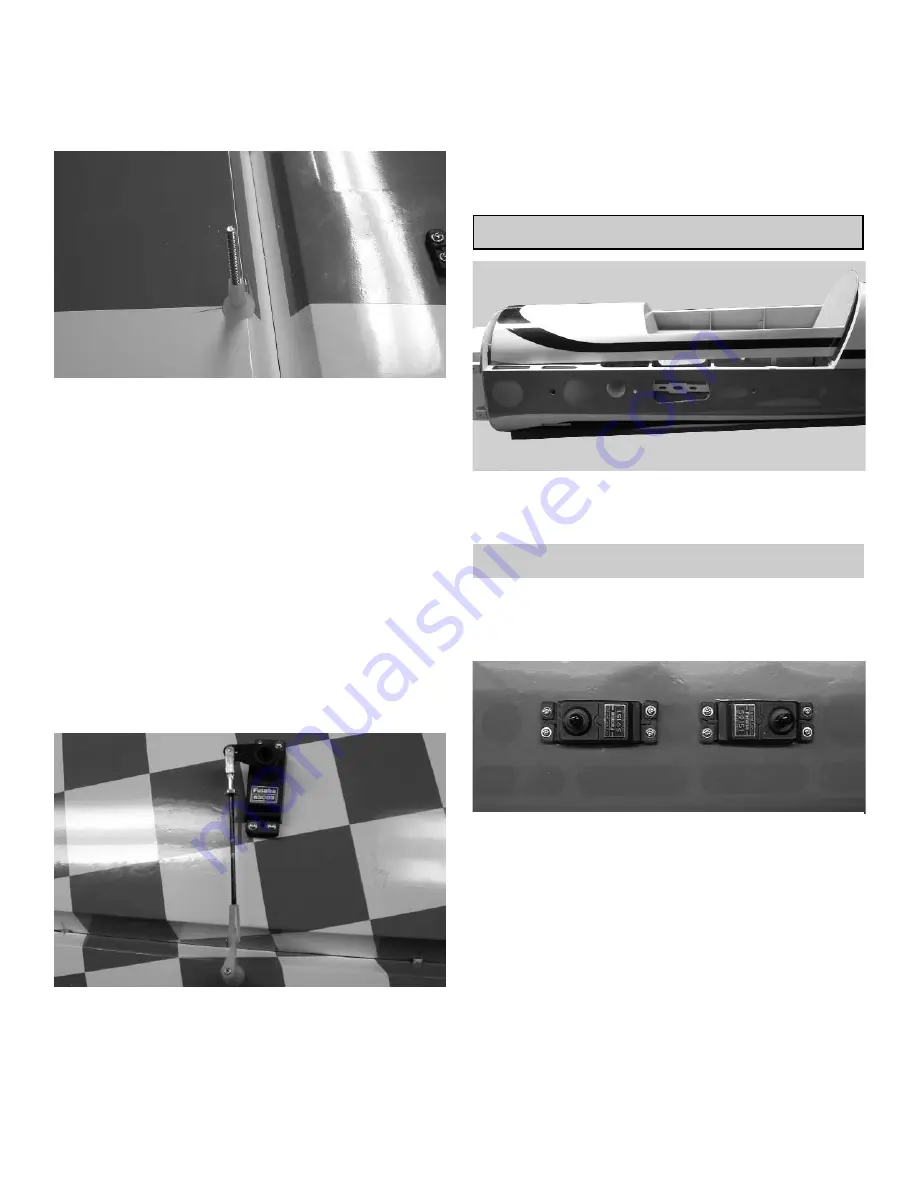
6
3.
Using a 1/8” drill, drill half way through the
aileron hole from both top and bottom till the
drill passes through the aileron.
Insert the 6-32 x 2-1/4 allen head bolt into the
top of the aileron.
Thread the bolt all the way till the head is flush
with the top of the aileron.
4.
On the bottom of the aileron, place first the
cup washer then the nylon nut onto the 6-32
bolt.
Using a 3 mm metric allen wrench tighten the
nylon nut all the way down till it rest in the cup
washer and is tight to the aileron.
Thread the nylon adjustable control horn onto
the bolt.
(Note: Thread the side that you can
see the cut threads in the nylon onto the
bolt)
2.
With the aileron servo in place, make a mark
on the aileron at a 90º degree angle to the
trailing edge and in line with the servo. Look
for the control horn hard point under the cov-
ering. This is the location for the control horn.
5.
Thread the 4-40 x 3-1/4” double threaded rod
into the nylon adjustable control horn.
Place a 4-40 hex nut and a metal clevis on the
other end of the threaded rod.
Mount the clevis to the servo arm and place
the clevis clip on the clevis.
6.
Repeat 1 thru 5 for the second aileron.
FUSELAGE HATCH
The top front half of the fuselage is a hatch. Remove
the 4-40 socket head bolts on the side of the fuse-
lage to disengage the hatch.
ELEVATOR & RUDDER SERVOS
1.
Collect the following items
(2) Servos
(2) 24” Servo extensions
1.
Locate the servo holes at the rear of the fuse-
lage side.
Remove the covering over both servo holes.
Note: This is the time to decide if you will be using
two servos for the rudder.
2.
Remove the covering over the servo hole on
the other side of the fuselage
Using the 24” servo extensions install all the
servos facing the same direction as shown in
the photo above.


































